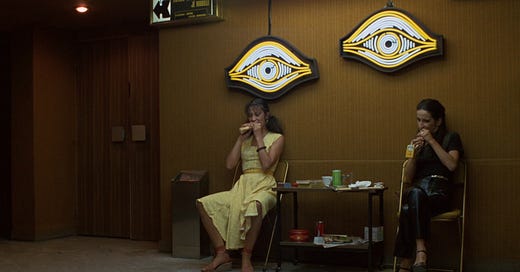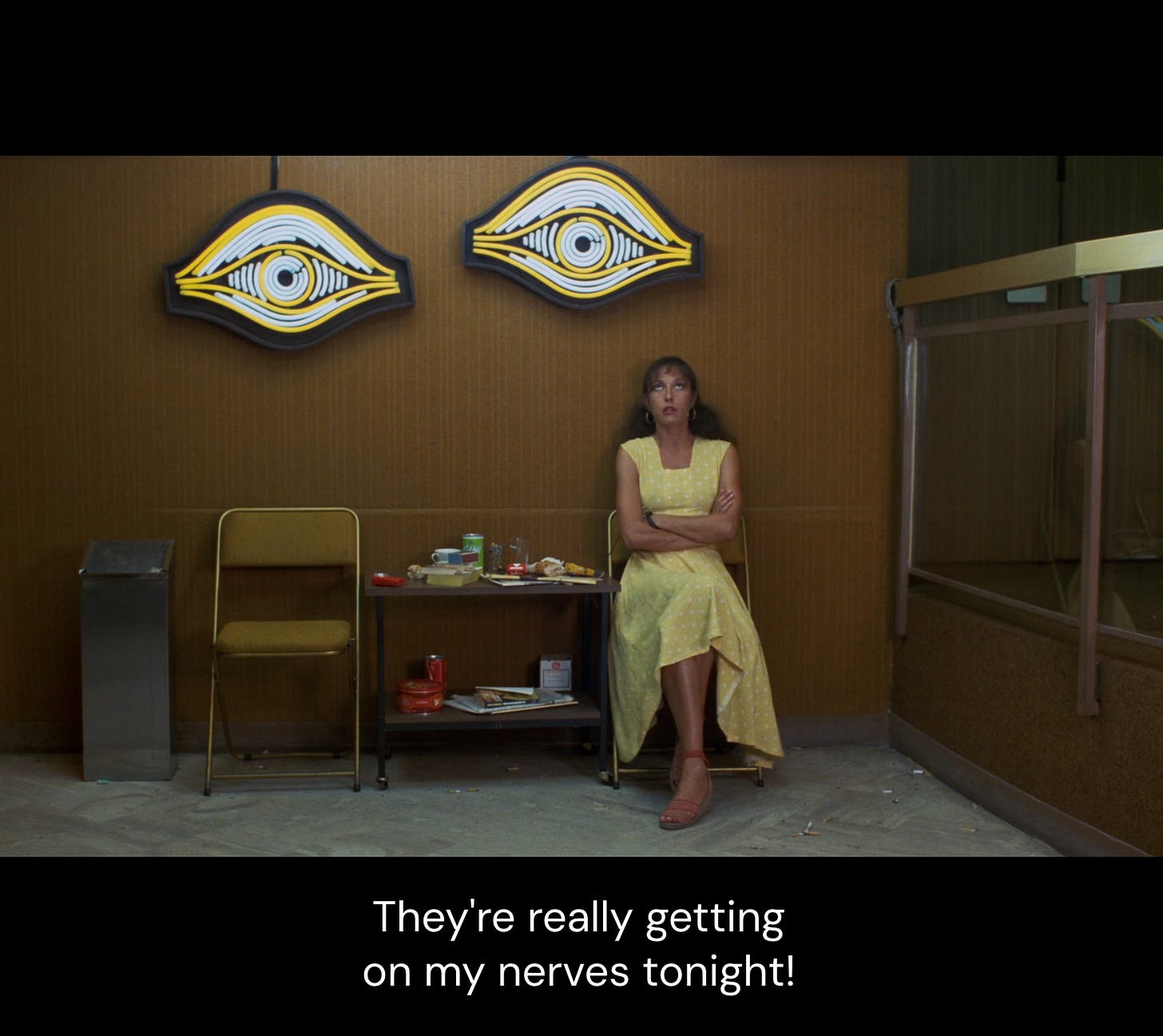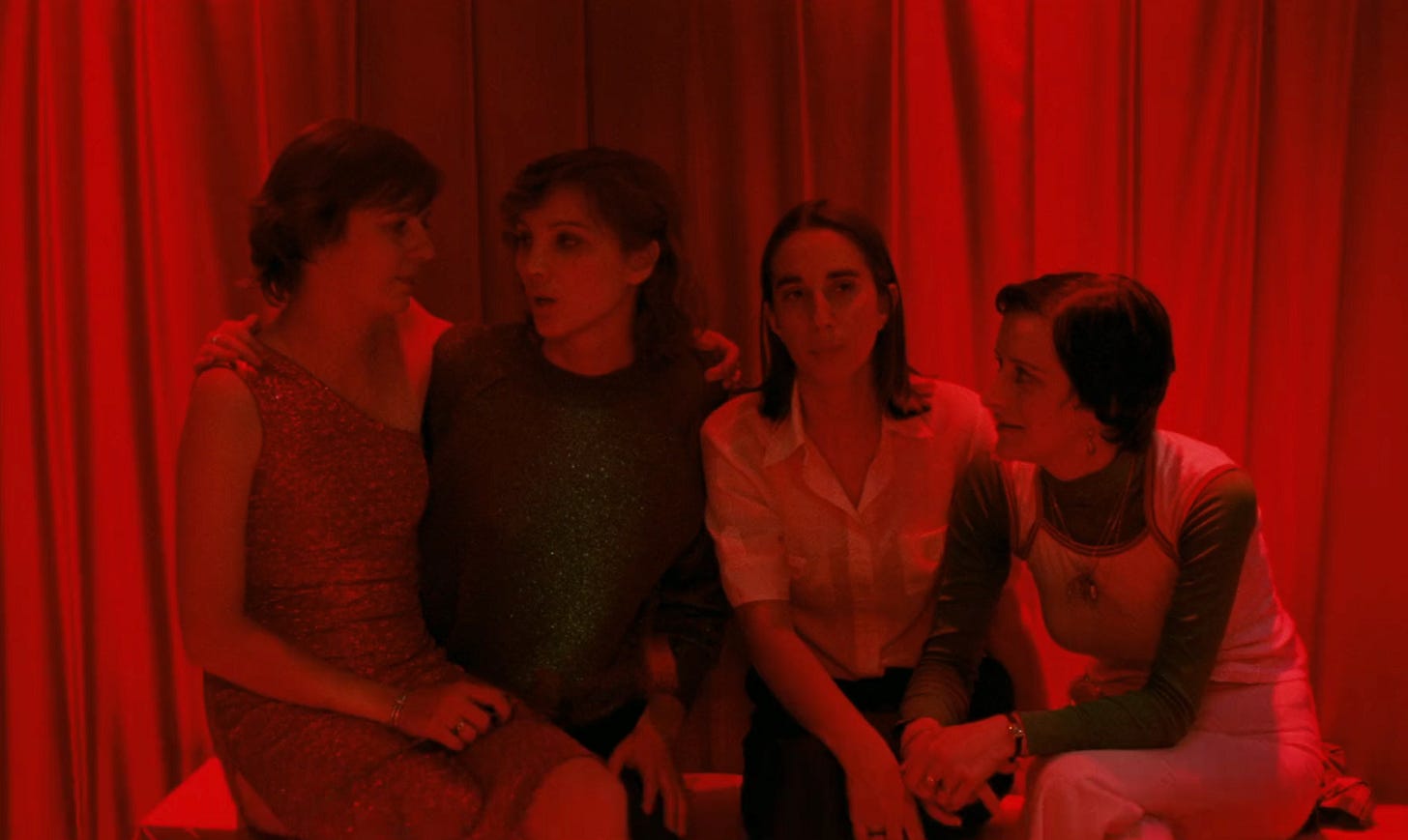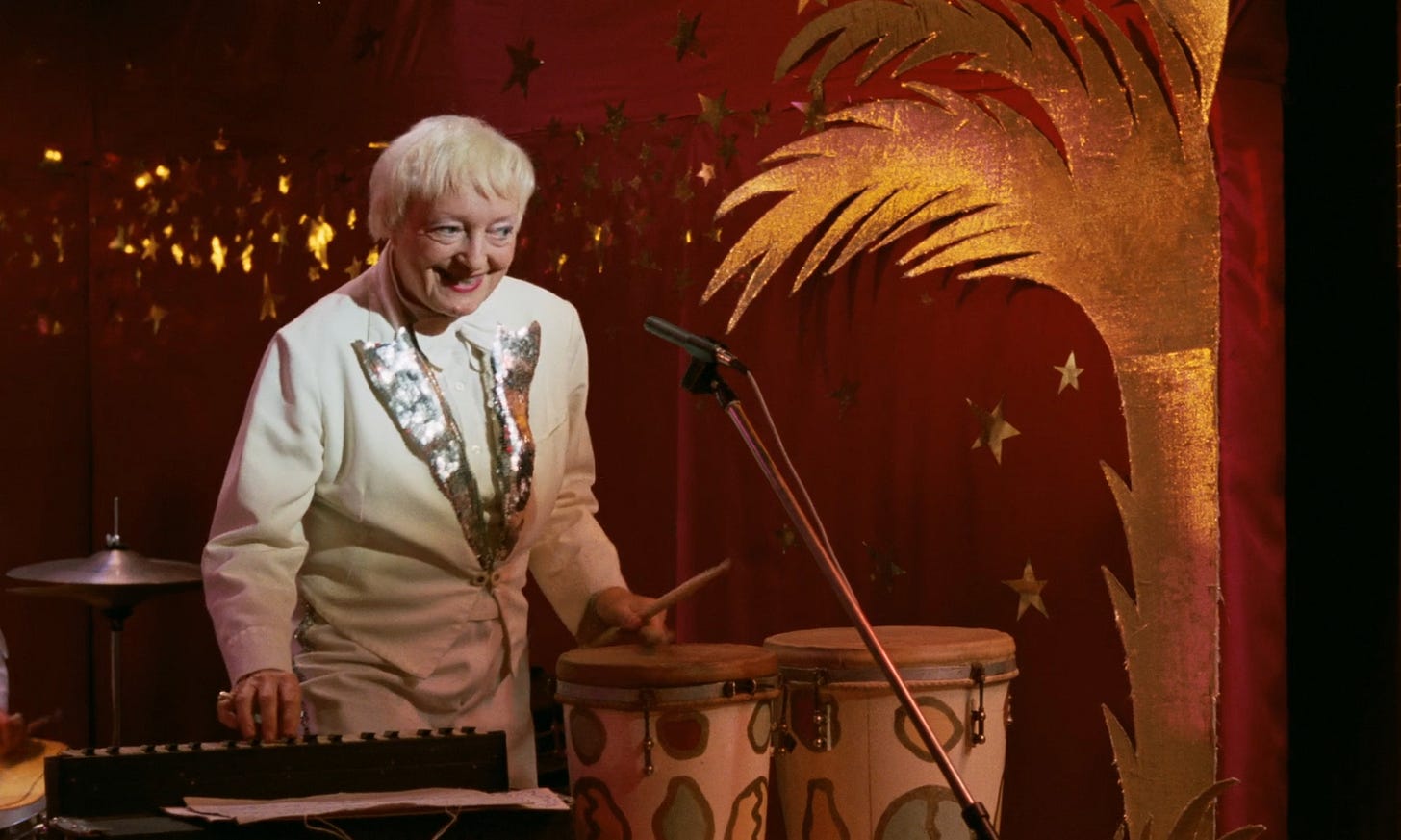Lately I have been thinking about a world without men. I'm sure given the current climate you can imagine a few reasons why. Simone Barbès ou la vertu, the debut film of Marie-Claude Treilhou, opens like a play. The set is a muddy colored lobby of a pornographic theater where we meet Simone and Martine. Two neon lit eyes hang above them as an ironic decoration and statement about what's being viewed inside.
These two women could not be more opposite from one another, the way many coworkers often are. There's a thing that happens at work sometimes where someone shares a personal detail and you have to decide if you're going to give sage advice or keep things light. There's no real reason to keep up social norms in this work environment where the women sit outside hearing the moans and sounds of each film, which at times feels like an experimental soundtrack for the film. Simone is all sass and know-it-all bravado against Martine the wistful romantic lacking the confidence to confront her relationship's shortcomings.
In between their banter a cast of characters greet them, pass tickets and often attempt to see two shows for the price of one (again, men). I loved this contained little world where they eat sandwiches, drink wine, and often condescend the male patrons. The men quickly blend into one another with a few standing out: One who expressively complains about the film's lack of quality and focus (a true cinephile), or another telling a grandpa-like fable which feels completely out of place in this setting. The takeaway for me was that men will always ruin girls night. Even if girls night is your job.
The night paces on and Simone is suddenly off to visit her situationship at our second set: a lesbian bar where couples connect to rhythms of pounding piano keys and the slinky sounds of an accordion. It becomes clear very quickly that Simone came with a motive, to see her maybe girlfriend, who is too busy performing sequined gladiator choreo to really give her the attention she craves. In my experience, this is always a bad idea.
As we slide from one vignette to another we’re greeted with lush textural sets and the most gorgeous palettes set amidst early studies of bisexual lighting. I wanted to run my hand across the wood panelling’s grooves and tap the gold stars glued to the walls of the bar’s stage. The bar band, clad in matching white satin suits also brought to mind Blue Velvet which debuted six years later. My romantic film loving mind wants to believe that David Lynch saw this at a film festival and it deeply inspired him.
Even at the queer bar men seemed omnipresent, there to annoy and frustrate the women. I started to believe that was Treilhou's subtle point: Women can't be left alone even in their own spaces. As Simone longs for a connection at the bar, a rude wealthy man gives her the old "You should smile more" and I wished that I could throw a martini in his direction.
In our final scene a man trails Simone in his car to offer her a ride and I instantly worried about our fiery lead. Decades of Dateline, Unsolved Mysteries, and 20/20 have taught me that you don't get into a car with a man you don't know nor let him take you to a second location. Yet for her, there's an air of defiance. She gets in the driver's seat, fully in control. She even teases him about her skills in the bedroom: "A Woman of fantasy… that's me".
There are times when this film edges into crime thriller territory that made me laugh. There is a shooting that feels like it was thrown in last minute, and at times the score feels like it's for a procedural about bad cops in LA. But then again maybe that’s part of its charm.
As the screen went black, I found myself thinking about Martine - the quiet counterpoint to Simone's bravado. Women can't be left alone even in their own spaces, and yet they persist. Did she dump her boyfriend? Did she spend the night alone? Did she get home okay? In this world of constant male interruption, her fate feels symbolic of something larger - a quiet resistance, a moment of potential transformation.





















